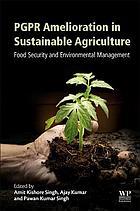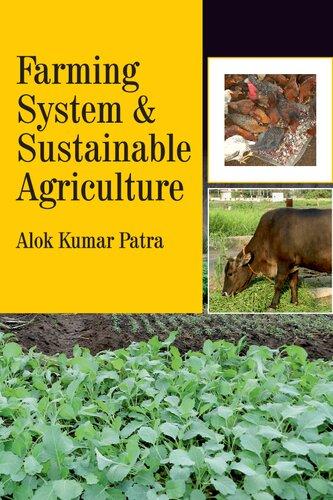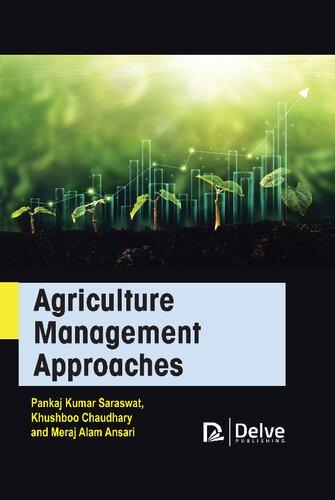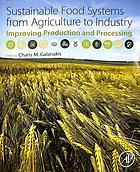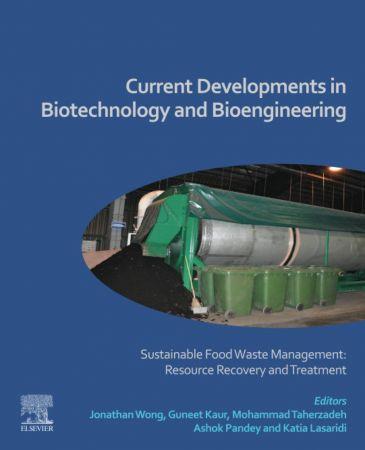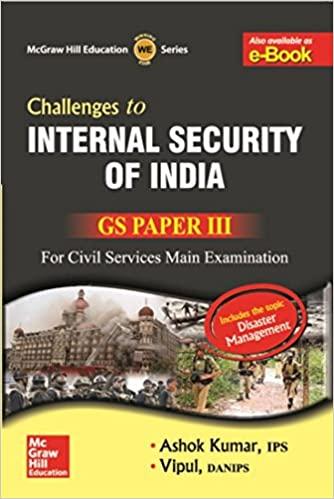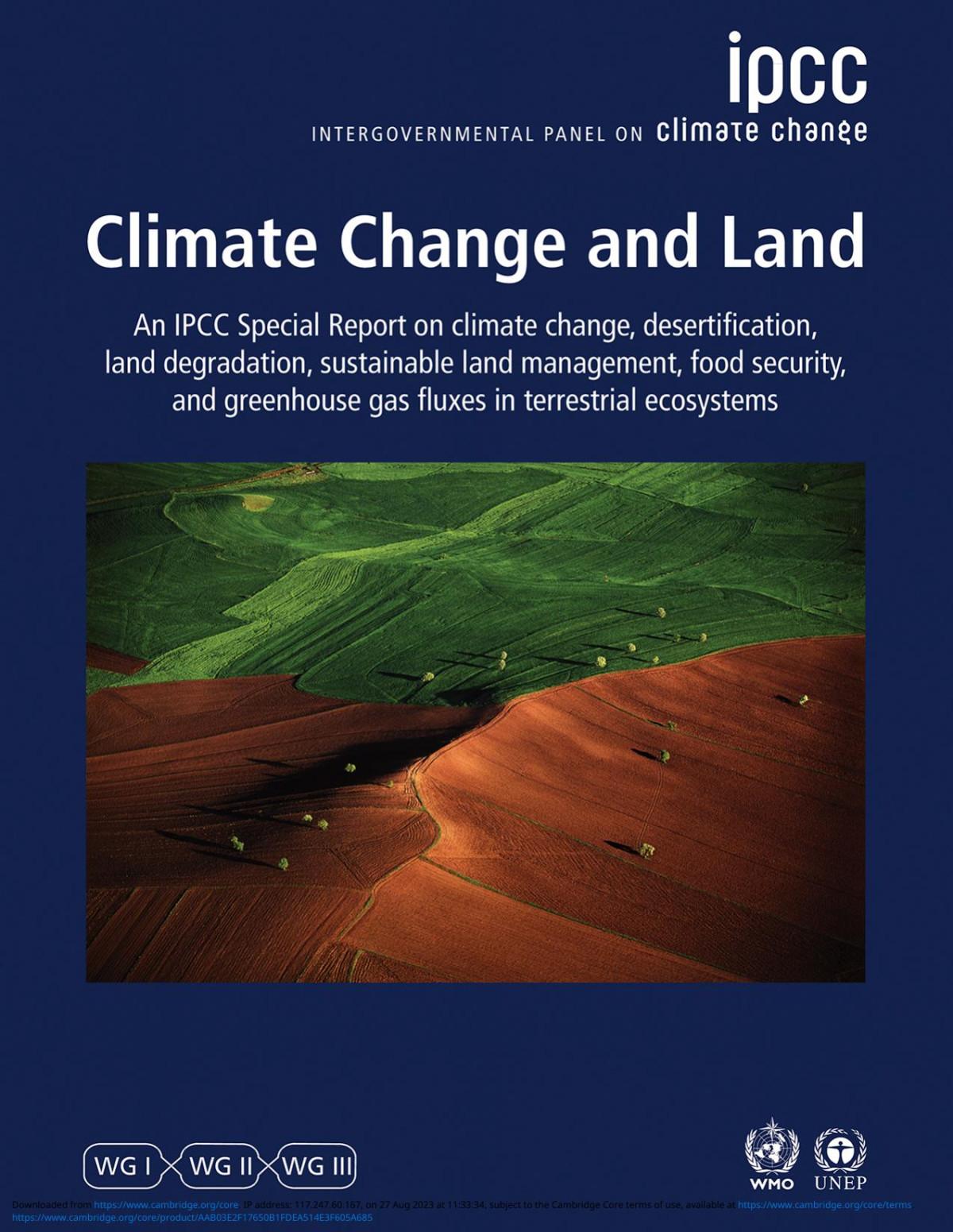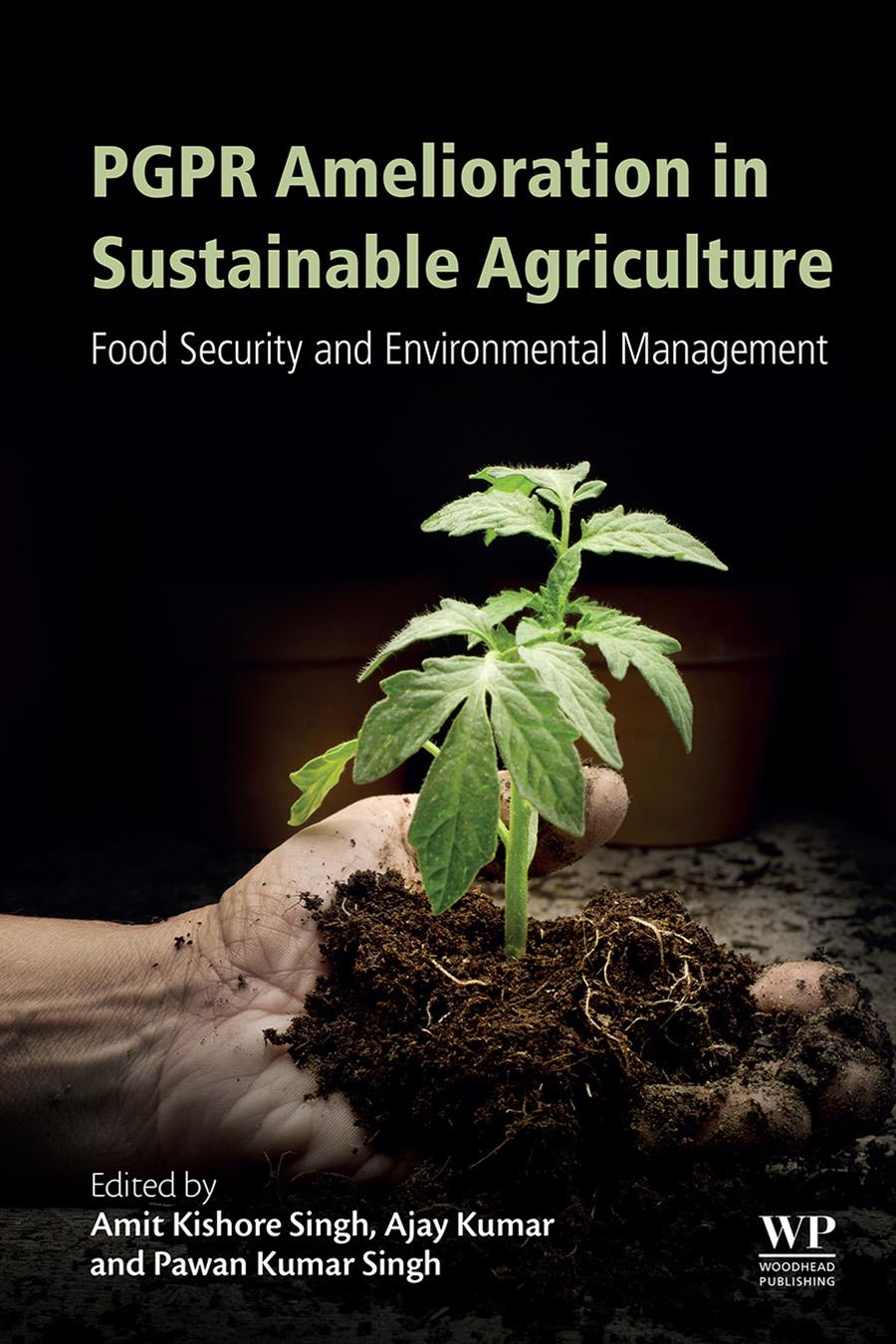PGPRAMELIORATIONIN SUSTAINABLE AGRICULTURE
FoodSecurityandEnvironmental Management
Editedby
AMITKISHORESINGH
WoodheadPublishingisanimprintofElsevier
TheOfficers’MessBusinessCentre,RoystonRoad,Duxford,CB224QH,UnitedKingdom 50HampshireStreet,5thFloor,Cambridge,MA02139,UnitedStates TheBoulevard,LangfordLane,Kidlington,OX51GB,UnitedKingdom
Copyright r 2019ElsevierInc.Allrightsreserved.
Nopartofthispublicationmaybereproducedortransmittedinanyformorbyanymeans, electronicormechanical,includingphotocopying,recording,oranyinformationstorageandretrieval system,withoutpermissioninwritingfromthepublisher.Detailsonhowtoseekpermission,further informationaboutthePublisher’spermissionspoliciesandourarrangementswithorganizationssuch astheCopyrightClearanceCenterandtheCopyrightLicensingAgency,canbefoundatour website: www.elsevier.com/permissions
Thisbookandtheindividualcontributionscontainedinitareprotectedundercopyrightbythe Publisher(otherthanasmaybenotedherein).
Notices
Knowledgeandbestpracticeinthisfieldareconstantlychanging.Asnewresearchandexperience broadenourunderstanding,changesinresearchmethods,professionalpractices,ormedicaltreatment maybecomenecessary.
Practitionersandresearchersmustalwaysrelyontheirownexperienceandknowledgeinevaluating andusinganyinformation,methods,compounds,orexperimentsdescribedherein.Inusingsuch informationormethodstheyshouldbemindfuloftheirownsafetyandthesafetyofothers,including partiesforwhomtheyhaveaprofessionalresponsibility.
Tothefullestextentofthelaw,neitherthePublishernortheauthors,contributors,oreditors,assume anyliabilityforanyinjuryand/ordamagetopersonsorpropertyasamatterofproductsliability, negligenceorotherwise,orfromanyuseoroperationofanymethods,products,instructions,orideas containedinthematerialherein.
BritishLibraryCataloguing-in-PublicationData AcataloguerecordforthisbookisavailablefromtheBritishLibrary
LibraryofCongressCataloging-in-PublicationData AcatalogrecordforthisbookisavailablefromtheLibraryofCongress
ISBN:978-0-12-815879-1(print)
ISBN:978-0-12-816019-0(online)
ForinformationonallWoodheadPublishingpublications visitourwebsiteat https://www.elsevier.com/books-and-journals
Publisher: CharlotteCockle
AcquisitionEditor: NancyMaragioglio
EditorialProjectManager: KarenR.Miller
ProductionProjectManager: DebasishGhosh
CoverDesigner: MatthewLimbert
TypesetbyMPSLimited,Chennai,India
1.EcologyandDiversityofPlantGrowthPromoting RhizobacteriainAgriculturalLandscape1 AwadheshKumarShukla
1.1 Introduction1
1.2 MicrobialDiversityAnalysis2
1.3 PlantGrowthPromotingRhizobacteria3
1.4 Spatio-TemporalChangesandFactorAffectingPGPRDiversity5
1.5 PhosphateSolubilization6
1.6 SiderophoreProduction7
1.7 NutrientExchange8
1.8 MicroorganismsinAgriculture8
1.9 FuturePerspective10
1.10 Conclusions10 References11
2.MechanismsofPlant-MicrobeInteractionsanditsSignificance forSustainableAgriculture17 PremPratapSingh,AnupamKujur,AmritaYadav,AkshayKumar, SandeepKumarSinghandBhanuPrakash
2.1 Introduction17
2.2 CataloguingthePlant-MicrobeInteraction19
2.3 FactorsGoverningPlant-MicrobeInteractions24
2.4 ApplicationsofPlant-MicrobeInteractions32
2.5 ConclusionandFuturePerspectives33 References34 FurtherReading39
3.PlantGrowthPromotingRhizobacteria:Application inBiofertilizersandBiocontrolofPhytopathogens41 MonikaSingh,DivyaSingh,AkankshaGupta,KapilDeoPandey, P.K.SinghandAjayKumar
3.1 Introduction41
3.2 PlantGrowthPromotingBacteriaasBiofertilizer42
3.3 MechanismofAction43
3.4 MicrobialInoculationforthePlantGrowthPromotion50
3.5 PlantGrowthPromotingBacteriaasBiocontol56 3.6 Conclusion57 Acknowledgments58 References58 FurtherReading66
4.PGPRBioelicitors:InducedSystemicResistance(ISR) andProteomicPerspectiveonBiocontrol67 PoojaKannojia,KrishnaKumarChoudhary,AkhileshwarKumarSrivastava andAmitKishoreSingh
4.1 Introduction67
4.2 PGPRasBCAsandtheirModeofActions68
4.3 ProteomicPerspectiveonBiocontrol75
4.4 ConclusionandFuturePerspective76 References79 FurtherReading83
5.AmeliorationofSalinityStressbyPGPR:ACCDeaminase andROSScavengingEnzymesActivity85 NidhiBhartiandDeeptiBarnawal
5.1 Introduction85
5.2 SalinityStressandROS86
5.3 ROSScavenginginPlants87
5.4 EthyleneinSalinityStress88
5.5 PlantGrowthPromotingRhizobacteria90
5.6 FutureProspective99 Acknowledgments99 References99 FurtherReading106
6.RoleofPlantGrowthPromotingRhizobacteriainDrought Tolerance:RegulatingGrowthHormonesandOsmolytes107 DeeptiBarnawal,RachnaSinghandRanaP.Singh
6.1 Introduction107
6.2 DroughtAdaptationsbyPlants-MicrobeCombination109
6.3 MechanismsFollowedbyPlantsforDroughtTolerance110
6.4 PGPRMediatedPhytohormonesinDroughtMitigation112
6.5 Osmolytes:BiomoleculestoEndureDroughtStressinPlants117
6.6 DiversityofOsmoprotectantsAmongPGPR118
6.7 Conclusion121 References121
7.PlantGrowthPromotingRhizobacteria(PGPR)forSustainable Agriculture:PerspectivesandChallenges129 MahendraPrasad,R.Srinivasan,ManojChaudhary,MukeshChoudhary andLokeshKumarJat
7.1 Introduction129
7.2 TheRhizosphere:APlayGroundforPGPRActivities131
7.3 WhatarePlantGrowthPromotingRhizobacteria132
7.4 OccurrenceandFormsofPGPR133
7.5 RoleofPGPRforSustainableAgriculture134
7.6 FuturePerspectiveandChallenges145
7.7 ConcludingRemarks146 Acknowledgements146 References146 FurtherReading157
8.RecentDevelopmentofPatentinIndianScenario WithSpecialReferencetoMicrobialPatents159 VirendraKumarMishra,HariomVermaandGurudattaSingh
8.1 Introduction159
8.2 WhatCanBePatented?160
8.3 TypesofPatents161
8.4 MicrobialPatentsinIndianScenario161
8.5 StatusofMicrobialPatenting162
8.6 RequirementsforMicrobiologicalPatentApplication163
8.7 CriticalIssuesonMicrobialPatents164
8.8 ConclusionandFutureProspective165 References166 FurtherReading166
9.EvidenceforWidespreadMicrobivoryofEndophyticBacteria inRootsofVascularPlantsThroughOxidativeDegradation inRootCellPeriplasmicSpaces167
JamesF.White,Jr.,MónicaS.Torres,SatishKumarVerma, MatthewT.Elmore,KurtP.KowalskiandKathrynL.Kingsley
9.1 Introduction167
9.2 SeedlingSurvey,SeedTransmission,andBacterialDistribution inSeedlingTissues169
9.3 EvidenceforMicrobivoryinDiverseVascularPlantFamilies178
9.4 NuclearColonization178
9.5 BacterialMovementinPlantCells179
9.6 BacterialColonizationofSeedlingRootsof PanicumVirgatum 180
9.7 ChangeinBacterialShape180
9.8 EvidenceforIncreasedNitrogenAssimilationbyBacteria inPlanta 181
9.9 TheLysisProcess182
9.10 MicrobivoryasaDefensefromParasitismbyEndophyticBacteria183
9.11 The “RhizophagyCycle” or “RhizophagySymbiosis” 185
9.12 Conclusions186 Acknowledgments187 References188 FurtherReading193
10.PortrayingRhizobacterialMechanismsinDroughtTolerance: AWayForwardTowardSustainableAgriculture195 ManojKaushal
10.1 Introduction195
10.2 RhizobacterialMediatedMechanismsofDroughtStressTolerance196
10.3 ModulationsinPhytohormonalLevels199
10.4 OsmolyteProductiontoReduceOsmoticStress202
10.5 AntioxidantDefensiveMachinery204
10.6 RhizobacterialExopolysaccharidesProduction206
10.7 VolatileProductioninInducingDroughtTolerance208
10.8 ProductionandRegulationofStress-ResponsiveGenes208
10.9 ConclusionandFutureOutlook209 References210
11.IsolationandCharacterizationofPlantGrowthPromoting RhizobacteriaFrom MomordicaCharantia L.217 RituSingh,AjayKumar,MonikaSinghandKapilDeoPandey
11.1 Introduction217
11.2 MaterialsandMethods218 11.3 Results222
11.4 Discussions230
11.5 Conclusion235 Acknowledgments236 References236
12.ToleranceofHeavyMetalToxicityUsingPGPRStrains of PseudomonasSpecies 239
SandeepKumarSingh,PremPratapSingh,AkankshaGupta, AmitKishoreSinghandJitendraKeshri
12.1 Introduction239
12.2 HeavyMetalsandTheirEffectsonPlantGrowth240
12.3 PseudomonasSp. inHeavyMetalTolerance241
12.4 MechanismofHeavyMetalTolerance242
12.5 FutureProspective247
Acknowledgments247
Thispageintentionallyleftblank
LISTOFCONTRIBUTORS
DeeptiBarnawal
DepartmentofEnvironmentalScience,SchoolofEnvironmentalSciences,Babasaheb BhimraoAmbedkarUniversity(ACentralUniversity),Lucknow,UttarPradesh,India
NidhiBharti
DepartmentofBotany,SavitribaiPhulePuneUniversity,Pune,UttarPradesh,India
ManojChaudhary
CropProductionDivision,ICAR-IndianGrasslandandFodderResearchInstitute,Jhansi, UttarPradesh,India
KrishnaKumarChoudhary
DepartmentofPlantSciences,SchoolofBasicandAppliedSciences,CentralUniversity ofPunjab,Bathinda,Punjab,India
MukeshChoudhary
CropProductionDivision,ICAR-IndianGrasslandandFodderResearchInstitute,Jhansi, UttarPradesh,India
MatthewT.Elmore
DepartmentofPlantBiology,RutgersUniversity,NewBrunswick,NJ,UnitedStates
AkankshaGupta
CenterofAdvancedStudyinBotany,InstituteofScience,BanarasHinduUniversity, Varanasi,UttarPradesh,India
LokeshKumarJat
DepartmentofSoilScienceandAgriculturalChemistry,AgriculturalResearchStation, Alwar,S.K.N.AgricultureUniversity,Jobner,Rajasthan,India
PoojaKannojia
NationalCentreofOrganicFarming,MinistryofAgricultureandFarmersWelfare, HapurRoad,Ghaziabad,UttarPradesh,India
ManojKaushal
InternationalInstituteofTropicalAgriculture,Ibadan,Nigeria
JitendraKeshri
DepartmentofFoodQuality&Safety,InstituteforPostharvestandFoodSciences, TheVolcaniCenter,ARO,RishonLeZion,Israel
KathrynL.Kingsley
DepartmentofPlantBiology,RutgersUniversity,NewBrunswick,NJ,UnitedStates
KurtP.Kowalski
U.S.GeologicalSurvey,GreatLakesScienceCenter,AnnArbor,MI,UnitedStates
AnupamKujur
CentreofAdvancedStudyinBotany,InstituteofScience,BanarasHinduUniversity, Varanasi,UttarPradesh,India
AjayKumar
CenterofAdvancedStudyinBotany,InstituteofScience,BanarasHinduUniversity, Varanasi,UttarPradesh,India
AkshayKumar
CentreofAdvancedStudyinBotany,InstituteofScience,BanarasHinduUniversity, Varanasi,UttarPradesh,India
VirendraKumarMishra
InstituteofEnvironmentandSustainableDevelopment,BanarasHinduUniversity, Varanasi,UttarPradesh,India
KapilDeoPandey
CenterofAdvancedStudyinBotany,InstituteofScience,BanarasHinduUniversity, Varanasi,UttarPradesh,India
BhanuPrakash
CentreofAdvancedStudyinBotany,InstituteofScience,BanarasHinduUniversity, Varanasi,UttarPradesh,India
MahendraPrasad
CropProductionDivision,ICAR-IndianGrasslandandFodderResearchInstitute,Jhansi, UttarPradesh,India
AwadheshKumarShukla
DepartmentofBotany,KSSaketPGCollegeAyodhya,Faizabad-224123affiliated toDr.RamManoharLohiaAvadhUniversity,Faizabad,UttarPradesh,India
AmitKishoreSingh
BotanyDepartment,KamlaNehruPostGraduateCollege,Raebareli,UttarPradesh, India
DivyaSingh
CenterofAdvancedStudyinBotany,InstituteofScience,BanarasHinduUniversity, Varanasi,UttarPradesh,India
GurudattaSingh
InstituteofEnvironmentandSustainableDevelopment,BanarasHinduUniversity, Varanasi,UttarPradesh,India
MonikaSingh
CenterofAdvancedStudyinBotany,InstituteofScience,BanarasHinduUniversity, Varanasi,UttarPradesh,India
P.K.Singh
CenterofAdvancedStudyinBotany,InstituteofScience,BanarasHinduUniversity, Varanasi,UttarPradesh,India
PremPratapSingh
CentreofAdvancedStudyinBotany,InstituteofScience,BanarasHinduUniversity, Varanasi,UttarPradesh,India
RachnaSingh
MicrobialTechnologyDepartment,CSIR-CentralInstituteofMedicinalandAromatic Plants,Lucknow,UttarPradesh,India
RanaP.Singh
DepartmentofEnvironmentalScience,SchoolofEnvironmentalSciences,Babasaheb BhimraoAmbedkarUniversity(ACentralUniversity),Lucknow,UttarPradesh,India
RituSingh
CentreofAdvanceStudyinBotany,InstituteofScience,BanarasHinduUniversity, Varanasi,UttarPradesh,India
SandeepKumarSingh
CentreofAdvancedStudyinBotany,InstituteofScience,BanarasHinduUniversity, Varanasi,UttarPradesh,India
R.Srinivasan
CropProductionDivision,ICAR-IndianGrasslandandFodderResearchInstitute,Jhansi, UttarPradesh,India
AkhileshwarKumarSrivastava
CenterofAdvancedStudy,DepartmentofBotany,BanarasHinduUniversity,Varanasi, UttarPradesh,India
Mo ´ nicaS.Torres
DepartmentofPlantBiology,RutgersUniversity,NewBrunswick,NJ,UnitedStates
HariomVerma
DepartmentofBotany,BanarasHinduUniversity,Varanasi,UttarPradesh,India
SatishKumarVerma
CentreofAdvancedStudyinBotany,BanarasHinduUniversity,Varanasi,UttarPradesh, India
JamesF.WhiteJr. DepartmentofPlantBiology,RutgersUniversity,NewBrunswick,NJ,UnitedStates
AmritaYadav
CentreofAdvancedStudyinBotany,InstituteofScience,BanarasHinduUniversity, Varanasi,UttarPradesh,India
Thispageintentionallyleftblank
Another random document with no related content on Scribd:
"You must understand that God is offering you, through a certain channel, help, food, sustenance,—that you have to use the channel, and to accept what He gives. But more is not needed. Many a poor man drinks from the river below, without the least idea of what the water is composed of, or how it came there. And a little child doesn't refuse the food his mother gives him, until he shall have analysed its nature, and tested the make of the vessels which hold it. He doesn't think about that at all, but trusts his mother's love and wisdom,—eats and drinks,—is satisfied and thankful."
Thyrza drew a long breath. "Yes,—I see," she said.
"It seems to me so melancholy," I added, "that when God says, 'Open thy mouth wide, and I will fill it,' we turn away from Him, to wrangle with one another about the kind of food He means to give, and the way in which He will give it. Better do simply as our Church bids us,—'Take and eat this . . . with thanksgiving!' 'Drink this . . . and be thankful.' And then we may be sure that Christ will do the rest."
Little more passed between us, for the waggonette party returned. But I do hope I may have helped that dear girl just a little. I have a very strong feeling of sympathy for thoughtful girls like her, in this difficult age, when every statement of every truth is subjected alike to careless handling and to microscopic inspection. The microscopic inspection, if honest and impartial, works no harm. The careless handling does do harm,—not to Truth, but to those who indulge in it.
XXIII.
"INDEED!"
GLADYS HEPBURN'S JOURNAL.
August 12. Wednesday.
SCARCELY more than a fortnight since the Romillys went away: and I am sure it seems an age.
Poor Mrs. Romilly has been so dreadfully ill. Nobody seems exactly to understand how she was hurt, except about the collar-bone, which doesn't explain her being so very ill. Mother believes that it was "a bad jar to her nervous system;" and I shouldn't wonder, for she and her little husband in their different ways seem to be made up of nothing but nerves,—as if all the bones and muscles had been left out. The wonder is that all the girls are not mere packets of nerves too! But I don't think they are,—except Elfie!
Mr. Romilly is out there still with Eustace, and there isn't the least talk of their coming back to England. Mrs. Romilly is better and out of danger. But now that Mr. Romilly has actually reached Cologne, he is settling down quite comfortably. Uncle Tom declares he "won't budge" for six months at least. And Ramsay says—"Sixteen."
Miss Con is at Beckdale, in charge of all those girls. Mother and I do pity her. She has written once to me,—a kind cheerful letter, all about the scenery of Yorkshire.
Proofs of my book are coming in fast. Correcting them is most delightful. A story looks so much nicer in proof than
in MS. I wonder why.
August 14. Friday.—Mother and I went to afternoon tea at The Park to-day, to meet a few people. There was somebody whom I have never seen before, though I have heard of him,—a Captain Lenox. The Denhams met him lately at Bath, and asked him here for two or three nights.
He looks younger than Sir Keith, and he is very upright and slight and soldierly. I do like soldierly men. He reminds me just a little of the picture of my Father when he was young, the one hanging over Mother's bedroom mantelpiece. I don't generally admire fair men, and Captain Lenox is rather fair, but it isn't a hay-coloured wishy-washy fairness. He has deep-blue eyes, and light-brown hair, and a tanned complexion. And he looks as if he had an immense amount of character and firmness.
Besides, he is so polite. He was talking to Annie Wilmington and quite enjoying himself, one could see, and all at once that queer little old Miss Pursey came poking about, looking for a seat. And he was up like a shot, offering her his, though he lost the rest of his talk with Annie, and though Miss Pursey isn't the sort of person that some young men take pains to be polite to. Of course they ought, but they don't.
I should not trouble myself to write all this about a stranger, if he were a mere stranger. But he isn't. I do feel a very particular interest in this Captain Arthur Lenox,—for Miss Con's sake.
He must, I suppose, be the same that Sir Keith met at Rouen: and Maggie is sure that he and Miss Con have been
friends some time or other, and that she—I don't quite know how to say it—that perhaps she has—well, has liked him a good deal. If Maggie had only said so much, I shouldn't have minded, I dare say. One person must like another, sometimes. I mean—things do begin in that way.
But when Maggie told Mother and me about Captain Lenox' name coming up, and about Miss Con turning pale, she actually laughed, and said, "Millie declares that Miss Con is desperately in love with him. And I was so angry, I could have given Maggie a good shaking. I am sure I should have said something I ought not: but Mother took it up, only saying a few words, and those exactly the right ones, about its being no business of Miss Millington's, and about Miss Millington being very wrong to speak so about Miss Con to Maggie or any of them."
"It is exceedingly bad taste," Mother said. "I hope you will take care that it does not go farther, Maggie dear."
Maggie did turn so red, and she said nothing.
But I cannot, of course, forget all this, and I am very glad to find the sort of man that Captain Lenox is,—not empty-headed, and able only to talk nonsense, but sensible and pleasant. He was rather silent part of the afternoon, but watchful and polite all the while, and when anything interested him, he brightened up and looked quite handsome. Lady Denham told Mother that he seemed to be a man of such very high principle, and that he is immensely respected in his regiment. And Mother thinks him really and truly a good man. She had such a pleasant little talk with him.
So I do believe he might be good enough for even dear Miss Conway,—if that should ever come to anything. But
very likely it was only a fancy of Maggie's, and of that tiresome absurd Miss Millington.
I am afraid I was wrong in one thing that I did. Lady Denham put him by me for a talk, and I got on with him much better than I do with Sir Keith. He didn't make me half so shy.
Something made me speak of the Romillys. I said where they were gone, and we talked about Yorkshire, and all at once it came into my head to mention Miss Conway, and to notice how he looked. And I did it, without stopping to think. That is the worst of me! I am always saying things without thinking, and having to be sorry afterwards. I do wish I could get over it.
He made no answer, but listened. I quoted something she had said about Yorkshire dales, and then I said how delightful she was, and that I didn't think I had ever seen anybody like her anywhere else. There would have been no harm, if I had said it all quite naturally, and with no thought behind of how he was feeling,—but I had the thought behind, so I could not depend on myself to be perfectly natural.
He heard me, exactly as if I had been speaking of a stranger, and as if he didn't care the very least. When I stopped, he said, "Indeed!" as coldly as possible: and I was so disappointed, I felt myself turn crimson. He gave me a glance, and I grew hotter still, and he turned his eyes away, and made some careless remark about the weather. Then somebody on his other side began to talk to him: and I was very uncomfortable. I couldn't think what he must have thought.
I have told Mother all this, and she says it is far wiser to leave things alone, and not to interfere. One is so apt to blunder. So I shall take very great care in the future, and never speak of anything of that sort, unless somebody else begins it.
Mother is not so sure as I was at first that his looking cold and grave, when he heard her name, proves him not to care at all. She says we can't possibly judge, as we don't in the least know the real facts of the case.
August 15. Saturday.—Only think!—We had quite a long call from Captain Lenox this afternoon. I felt shy at seeing him again, but he seemed to have for all about my awkwardness. So I hope it didn't look so bad as it felt.
He said he had found that Mother once knew an uncle of his, so he thought he might call. But I don't believe that was his real reason. For the uncle was not talked about at all, after the first moment. He is staying at The Park till Monday, and then he goes north for the rest of his furlough, —into Yorkshire. I don't know what part. It seems that Lady Denham and Sir Keith may go there soon, and they have actually secured some lodgings, and are paying for them. And Captain Lenox is to use these lodgings for as long as he likes.
Mother and I wonder where the lodgings are, for he did not tell us. But we asked no questions, and, as Mother says, we must not ask the Denhams. For it is not our business; and as they said nothing yesterday, they most likely don't wish us to know.
I had made up my mind not to say one word about Miss Conway; and then, just out of sheer nervousness and shyness, I found myself letting slip something about her, at least three times. I was so provoked; and Mother says I really must learn to have myself better in hand. Not that any harm was done; but one never ought to be drawn into saying a thing which one has resolved not to say.
I noticed that each time I said "Miss Conway," Captain Lenox turned half towards me, and then looked at Mother in a quiet polite way, as if he were asking about her. But nobody could have guessed from his manner whether he felt anything more than just a passing interest in a stranger. And he scarcely said a word himself, when her name came up. He only seemed to expect Mother to say something.
Mother managed beautifully,—so much better than I could. She didn't blush or look conscious, but she spoke of Miss Conway as a friend of Mrs. Romilly's and of ours too. We found that he had once seen Mrs. Romilly for five minutes,—he didn't say where or when,—and that he thought her "a beautiful woman." I am sure I don't think her so. But then Miss Conway does; and to my surprise Mother said so. And I had to slide my chair back, for fear Captain Lenox should see what I was thinking.
He didn't look the least conscious, but asked if we had a photograph of Mrs. Romilly. Mother opened my book, which was on the little table close at hand, and showed him all the likenesses of the Romillys that I have. And presently I heard Mother say—
"That is Miss Conway, whom we mentioned just now."
He certainly did look at that photo longer than at any of the rest; and he made one remark—
"Rather a fine face."
"Very good-looking," Mother said; and I could not help exclaiming—
"Oh, Miss Conway is much more really beautiful than Mrs. Romilly!"
Captain Lenox said, "Ah!" and gave a little pull to each side of his moustache, as if it wanted arranging.
"That may be a matter of opinion," Mother said, and I saw him making believe to examine the photo of Nellie on the opposite page, and giving little glances at Miss Con every other moment.
"Taken recently, I suppose," he said, as if it didn't signify at all, only he had to say something.
"Not Nellie Romilly," Mother answered. "I believe Miss Conway was taken some months ago,—before she came to Glynde."
Captain Lenox shut the album, and put it aside. Then he and Mother talked about all sorts of things for half-an-hour. I do think he must be a really and truly good man,—if only one could be quite sure that he has treated Miss Conway rightly. But that is the puzzle!
August 18. Tuesday. A letter from Maggie to-day. She says they find that Lady Denham and Sir Keith have taken rooms in a farm-house, quite near Beckdale House.
Then that must be where Captain Lenox is going!
Does Captain Lenox know? And does Miss Con know? And would either of them care?
Maggie doesn't write a word about Captain Lenox. She only speaks of the Denhams: and she seems to be in such a state of excitement about Sir Keith and his mother going. How odd Maggie is!
Miss Pursey said last week to me that everybody in Glynde expected Sir Keith to marry Nellie some day. And she seemed to think that he only had to ask Nellie, and Nellie would be sure to say "Yes." That vexed me; and besides I don't believe there is the least chance of such a thing.
Of course if it were for Nellie's happiness, I should be very glad,—only not for my own sake. For if she had a husband, I could not write to her comfortably about everything, as I do now. I should always fancy him peeping over her shoulder at my letters while she read them. Still I would not be so selfish as to think of that: only I don't believe Nellie admires Sir Keith particularly.
Mother says we must be very careful not to make mischief about Captain Lenox going to Yorkshire. So we do not mean to whisper one word about it to anybody, least of all to any of the Romillys.
Part of Maggie's letter is filled up with particulars of a new story she has in hand. She says she has "written to two well-known authoresses," asking them how she is to get it into print.
I don't quite see what the authoresses are to do. If the story is worth printing, some publisher would be almost sure to take it: and if not, the authoresses can't make it so. But perhaps they might give her some useful hints.
CHAPTER XXIV.
UNPALATABLE ADVICE.
CONSTANCE CONWAY'S JOURNAL.
August 15. Saturday.
WE glide on from day to day, hardly aware, perhaps, how time is flitting. Better accounts of Mrs. Romilly reach us, but no word is spoken of Mr. Romilly's return to England.
The holidays once over, I think life may become easier. At present it is not easy. Often when I get up in the morning the weight of the hours ahead seems almost more than I can bear. Perhaps the strain of responsibility has somewhat told upon me lately.
I do not think I am fanciful, or disposed to the foolish magnifying of small affronts. But one cannot entirely shut one's eyes to what lies just ahead.
The constant and fretting opposition has increased steadily. Whatever I suggest, the conclave, headed by Miss Millington, at once resist. Whatever I arrange, the conclave, headed by Miss Millington, at once turn into a grievance.
So far as possible, I appeal to Maggie for her wishes before deciding on any plan: and Maggie of course appeals
to "Millie." By this means, I have managed so far to avoid any serious struggles. Yet I sometimes wonder if I am acting quite wisely,—if I am not tacitly yielding to Miss Millington a power which she ought not to possess, and which she may sooner or later misuse.
If Lady Denham were not probably coming soon to Beckdale, I think I should appeal to her for advice. Yet it would be very difficult to put my perplexities into writing; and I am anxious not to take any hasty step.
The girls are talking of a walk to Gurglepool early next week. It has been chilly, with frequent rain for some days, and Maggie has had a cold: otherwise they would have gone sooner. I have fully determined that when they go, I go too. I have a certain dread of the place for them: probably a nervous and unnecessary dread; and of course they wish to see it.
Elfie has been poorly again: and I am still mystified at the change in her. She looks wretched,—pale, peaked, plain; all prettiness and animation gone: her moods being variable, but almost always fretful, and her fancies quite unmanageable. She persistently turns from me to "Millie." Thyrza is my one comfort.
By-the-bye, I have not mentioned our Church, which is between two and three miles off. The services are forlorn and sleepy: just in the style of sixty years ago: and the sermons wind lengthily round and round in hazy circles. When I go, I cannot help thinking of Sir Keith's words, the first time I saw him, about the needed help being "always there," if one is willing. Yes: I am sure he is right. But I do feel very thankful for the different spiritual food provided for us in Glynde,—even though the heavier responsibility is involved.
August 17. Monday. This morning, when the post came in, Maggie cried, "Oh! Two letters from strangers. I do believe it is both of them at once!"
There was a small burst of excitement and wonder the girls crowding round Maggie. She read aloud the first brief epistle, with an animation which paled visibly towards the close. Thyrza and I kept our seats, but nobody else did.
The letter was so tersely expressed, that it has remained word for word on my mind.
"MY DEAR
YOUNG LADY,—You
are most welcome to such advice as I can give you. My advice is,—Don't write till you can't help it! Never write merely for the sake of writing! When you have something to say which will be said, then say it in your best possible mode, and see if anybody counts it to be worth publishing. Till then, be a good girl, and mend your stockings. Yours truly
"ANNA SMITH"
"How stupid! She can't be at all a nice old lady," said Nona. "And a friend of yours, Millie!!" The reproachful intonation is not to be described.
Millie hastened to disavow the friendship. She had met Mrs. Smith once, she said, and had thought her a kind old lady, only peculiar of course,—all authoresses being peculiar. This, with a side-glance at me; for "Millie" does not
like Gladys Hepburn, and she knows that I do. I must honestly confess that Gladys does not like Miss Millington, and shows the same unequivocally in her manner.
"Yes, she must be peculiar," asserted Maggie, catching at the offered straw. "It is such a very odd letter,—really almost rude. I shall never write to ask her advice again."
Then, the second envelope being opened, Maggie read aloud again. The letter was longer, and I cannot recall it precisely: but it was very nearly as follows:
"DEAR MADAM,—I can scarcely offer to give an opinion about your writing, unless I see a specimen. If you like to send me a few pages, I will tell you honestly what I think. That is all I can do: and my opinion need not settle the matter for you finally. You may have enough of the gift to be worth cultivating: and if so, I may be able to give you two or three suggestions as to the cultivation needed. From the style of your letter, I should judge that you are very young: and that a considerable amount of preparation would be needed, before you could enter the lists of authorship, with the least hope of success.
"Choose one dozen or twenty MS. pages of your best, as a fair specimen.—I am, yours truly
"LETITIA
GRAHAM."
Maggie did not quite know what to make of this. She read it aloud a second time, commenting on each sentence, and evidently agreeing with Denham in his estimate of successful authoresses as "very odd customers!" But on the whole gratification won the day. For Miss Graham had not seen Maggie's last half-finished story. That was a consoling thought. When she had, it would of course make all the difference. She only wrote now to Maggie as she might write to—anybody!
"Do you mean to stop writing, if Miss Graham tells you?" demanded Thyrza.
Maggie looked astonished. "No. Why should I?" she asked.
"I don't know. It doesn't seem much use to ask for advice, unless you mean to follow it."
"I didn't ask her if I ought to write. I asked her what was the best way of getting into print."
If more were needed, Nona's remark supplied it:
"And of course, if she is a nice person, she'll tell you how, Maggie dear."
August 18. Tuesday.—This evening, after supper, I found that an excursion to Gurglepool was planned for to-morrow. Thyrza alluded to it, in evident unconsciousness that the matter had been concealed from me; and Maggie then explained. The party would walk, not drive, starting directly after lunch. Elfie, not being well enough for the fatigue, would of course stay behind under my guardianship: and
Thyrza, having been before, could act as guide to the rest. Mr. Stockmoor had explained to Denham all about the short-cut over the hills.
I wished that I had told Thyrza my intentions about Gurglepool. Had she known them, she would have refused to join in any such scheme, without reference to me first.
For a moment the temptation to yield was strong. I knew that any interference with the plans of Maggie and Millie would be a dire grievance. Yet I could not shirk my own responsibilities.
"I am very sorry, Maggie," I said, when she had done; "but things cannot, I am afraid, be exactly as you wish. If you go to Gurglepool to-morrow, I must go too."
"Why?" was asked all round, in astonished accents.
"Because I do not think it is a very safe place; and I wish to be with you—at all events, the first time."
Maggie and Miss Millington exchanged glances. "Elfie can't walk so far," Nona burst out.
"No," I said. "I must ask Thyrza to stay behind in my stead: or else the excursion must be deferred."
"What nonsense!" I heard this distinctly in Miss Millington's murmur.
"Yes,—of course I will," assented Thyrza at once, though she could not quite suppress a look of disappointment.
"But we want Thyrza with us," said Maggie. "And Millie will be there. You don't suppose Millie can't take proper care
of the children, Miss Con!" Her pretty grey eyes sparkled and met mine defiantly, and the peach-bloom deepened.
"No, Maggie," I said. "I am not questioning Miss Millington's powers. It is for my own satisfaction that I must go. I am answerable to your father."
"Not more than Millie is."
Maggie tossed her head as she spoke. The childishness of the utterance struck me oddly.
"Yea, certainly more," I replied. "Miss Millington has no responsibility about you older girls. You cannot have forgotten your father's words at the station, Maggie. I don't question the fact that you might all walk to Gurglepool a dozen times, and come home safely. But I have made up my mind that, as a matter of duty, I must the first time be one of the party. It is not for my own pleasure, and I am most sorry to disappoint Thyrza: still I have to do what I believe to be right."
Thyrza warmly assured me that she did not mind at all: she and Elfie would be perfectly happy together. The other girls drew in a knot round Miss Millington whispering. I have noted lately the growth of this schoolgirlish habit, and also I have seen Miss Millington encouraging it.
I could not hear what was said, and I did not try. Occasional bursts of laughter sounded, with more whispers between. Thyrza looked annoyed and quitted the room. I saw glances now and then levelled in my direction, and presently there was a distinct utterance—
"Captain Lenox!"
I paid no regard to the sound, working steadily. Indignation had to wait. Every faculty was bent to the task of keeping myself cool and unembarrassed.
The words came again more clearly:
"Captain Lenox!"
Still my needle went in and out; and Nona said aloud, pertly
"Millie says you know him, Miss Con."
"Whom?" I asked.
"Captain Lenox."
"I have known a Captain Lenox," I said, looking up. "It may or may not be the same."
Another whisper, and—"Don't tell!" reached me.
"Captain Lenox who used to be at Bath," Miss Millington said, her eyes fixed upon me.
"That would probably be my acquaintance," I answered. "Have you heard anything of him?"
"Yes,—something," she said pointedly enough; and Maggie giggled.
I put down my work, and threaded my needle with a steady hand,—wondering at myself. It flashed across me in that moment how little my dear Mrs. Romilly, if she knew what Miss Millington really is, would approve of such a companionship for her girls.
"Millie knows somebody in Bath too," Nona remarked. "And she has written to Millie about Captain Lenox."
"Very likely," I answered. "Bath is a large place."
Whispers again. I thought I heard—"Carries it off well! But you know how she looked at—"
This was in Miss Millington's voice. Nona's followed; and I said gravely
"Nona, I don't know what you and Maggie think, but I am very sure that your mother would not approve of such conduct. Whispering before others is a most unladylike trick. If you have secrets to discuss, you should either go into the dining-room, or ask me to leave you alone."
"Is that meant for me, Miss Conway?" demanded Miss Millington, with a furious flare-up. "Come, girls! We will go!"
And I was left alone, feeling strangely bruised and stunned. Was I right to speak so to Nona just then? Was it wise or unwise? I cannot judge yet. I am writing to-night, because sleep seems impossible: and now I am too tired to write more. How I could love those girls, if they would let me! But they will not. And "Millie" is the hindrance.
Things cannot go on so much longer. Sometimes I feel as if I must write fully to Nellie. Ought I to speak first to Miss Millington? Would she hear me? And what if I was betrayed into saying what I should afterward regret?
August 19. Wednesday. The excursion to Gurglepool has been put off till to-morrow. We actually made the start
to-day, and were turned back by rain.
I saw almost nothing of the girls all the morning,— except Thyrza, who is really distressed at Maggie's manner to me, though she does not know what passed yesterday evening, after she left the drawing-room.
Lunch over, I had to be quick if I would not be left behind. I foresaw small pleasantness in my self-imposed trip. Miss Millington was barely civil, and Maggie would scarcely answer when I spoke. Nona and the little ones, of course, followed suit.
So we started,—I, left to walk apart;—Denham rushing hither and thither; Maggie and Nona each hanging affectionately to one of "Millie's" arms, and the little ones keeping close to them, declining to approach me.
The first part of our way lay along the main road, going up the valley. I noted the gathering clouds, and made up my mind privately that we were in for heavy rain. But I said nothing. Others would see for themselves in time.
As we neared the Stockmoors' farm-house, I was somewhat in advance of the rest. Denham had climbed a bank for a flower, and the five stopped short,—perhaps to watch him, perhaps to note something else.
For I glanced back, and saw them gazing towards the whitewashed farm-house which lay close ahead. Involuntarily I looked in the same direction.
A young man was coming through the garden-gate; —a small gate, leading from the tiny flower-garden.
What first struck me was a certain familiarity in his figure and attitude,—the slight lithe figure, the soldierly
bearing, the grace, ease, and promptitude with which he swung open the gate and stepped out upon the road.
In a moment I was face to face with Arthur Lenox!
If it had been anywhere else—if I had been behind the others instead of before,—if I had not been conscious of one dozen curious eyes close at hand,—most of all, if I could have had the least assurance that Arthur cares for me still, —I think I must have given some little word or look of welcome, which might perhaps have led to more!
But as things were, it was impossible! How could I, knowing that Miss Millington stood there? How could I, knowing what Miss Millington has seen of my secret thoughts?—If she did see it, which I can never really doubt. How could I, feeling all the while that Arthur Lenox may have utterly changed, may have given up even the wish to meet me again? No; I knew then, and I know still, that I had no choice.
His eyes met mine, and he lifted his hat. He did not change colour or seem startled: and that looks as if he had indeed got over it. And I—I thought for the moment that my heart must die within me, yet I did not even turn pale. The need to keep up was too desperate. And I know that I managed well: perhaps, alas! Too well, if he could care still. For now indeed he must count the matter hopeless.
I bowed coldly,—not in too icy a fashion, which might have been taken for restrained feeling, but with a quiet indifference, as to the most ordinary acquaintance.
Then I felt that, in the natural course of events, acquaintances meeting on such a spot, would certainly exchange a few words. I did not offer my hand, but I
paused, and said something about "not expecting to meet Captain Lenox so far out of the world!"
"Odd encounters do take place sometimes," he answered in a manner freezingly polite. "I hope you are well."
"Thanks, quite," I replied. "Are you staying long at the farm?"
"A day or two, perhaps. No, not long. I came here to escape from crowds."
"Then we must not break in on your solitude," I said, slightly smiling. And I would have turned away with another bow, when, to my astonishment, up marched Maggie.
"Miss Con, is it Captain Lenox? Millie heard from her friend that he was coming. And she would like to be introduced."
This very unconventional and schoolgirlish address must have surprised Arthur Lenox even more than it surprised me. But he turned instantly to Maggie, lifting his hat again, —and I could not but see that he was struck. I know his face so well: and the momentary gleam of admiration gave me a keen pain. Yet I could not wonder at it. Maggie was looking her best;—the fresh roseate bloom heightened by walking; the grey eyes sweet and sparkling, half disposed to droop shyly under the curved black lashes.
"Captain Lenox,—Miss Romilly," I said coldly: and as Miss Millington approached, I named her also. Then, as Maggie fell back a pace, and "Millie" seemed disposed to get into a talk about the Bath friend, I added, "We are delaying Captain Lenox: and I do not think we have any time to lose."
Arthur Lenox made at once a responsive movement, not sorry, I thought, to escape from Miss Millington, though his eyes went again towards Maggie with evident interest. I gave him my hand as we said good-bye, distantly enough: and Maggie, with a cordial air, followed suit, actually inviting him to "afternoon tea at Beckdale House any day while he was at the farm." He thanked her, half excused himself, and went off at a rapid pace in the opposite direction to ourselves.
"That was hardly needful, Maggie," I said.
"Why? The Denhams know him. And he is your friend," said Maggie.
"The question for you is what your mother would wish," I said coldly. "My acquaintances are not necessarily always yours. If Mr. Romilly were here it would, of course, be different."
"Well,—I only know he is the handsomest man I ever saw in my life," declared Maggie.
I thought it best to let the matter drop. We went on pretty steadily until heavy rain turned us back, enforcing postponement of the Gurglepool excursion.
To-night, I am terribly weary and overstrained with today's encounter: and so hopeless. For this has indeed been destroying the bridge behind me.
ALONE IN GURGLEPOOL.
CONSTANCE CONWAY'S JOURNAL.
Written at intervals.
THE excursion to Gurglepool took place on Thursday, August 20. I have much to say which I must jot down gradually.
We had bright sunshine. I think I should have been glad of rain to keep us at home. For the whole morning I was haunted by the thought that Arthur Lenox might after all respond to Maggie's invitation, and look in at tea-time. Though not likely, it was not impossible. And I should be absent!
Yet my duty remained the same. If going was an "ought" the day before, it had not changed. I did feel sorely tempted to wish that I had not arranged to be of the party, or that some excuse were even yet possible. But conscience would not consent; neither would pride. I cannot tell which was the stronger.
Till lunch I stayed indoors, having a good deal to do. At lunch Maggie remarked—
"We've seen Captain Lenox again!"
"Have you?" asked Thyrza, who for some reason had not accompanied Maggie and Miss Millington. I think she and Nona had enjoyed an independent scramble with Denham.
"Yes,—we met him. And he and Millie had quite a talk together,—quite confidential, wasn't it, Millie dear?" Both laughed. "He could have come in to tea to-day, only we shan't be at home, so it would be no use. He means to go away to-morrow morning,—no, I think he said he should start this evening. But next time he visits the Denhams, he hopes to make father's acquaintance."
"Yes; I thought him rather smitten," murmured Miss Millington, whereat Maggie blushed.
The folly of this! As if girls of Maggie's type had not nonsense enough in their heads, without its being helped on. Hardly anything could have been in worse taste. If Mrs. Romilly knew!—with her refined delicacy of feeling!
But what could I do? Too well I divined at whom the shaft was levelled; and too keenly I realised what mischief Miss Millington's tongue might have done to me in one short interview. But I was defenceless. I could do nothing: and while my heart cried out bitterly against her, I was outwardly calm.
Luncheon over, we started, though not without a good deal of delay. It was a lovely ramble. How I could have enjoyed the fair surroundings of dale and mountain, under different circumstances!
The walk proved longer than we expected: quite four miles I should judge. Probably Denham missed the shortest route. We were all glad, on reaching the wild little valley, to throw ourselves down for a good rest; and most of our party were hungry enough to do good justice to the substantial Yorkshire tea-cakes which we had brought with us, to be eaten as buns.
Things had gone more smoothly thus far than I had feared. Part of the way thither Denham had walked beside me, chatting; and Maggie seemed good-humoured. I hoped that the extreme offence at my line of action was lessening.
When scrambling explorations began, after our rest, I submitted to be left in the rear. It would not do to seem suspicious or distrustful: and I could not, of course, keep my eyes upon all of them the whole time. Miss Millington was not likely to neglect the little ones; and the elder girls knew me to be at hand, if any difficulty arose. I was fain to be content with so much: and when they all rushed gaily off, I made no attempt to follow.
Thereafter I had time enough for quiet thought,—more time perhaps than was good for me. Shouts of laughter sounded faintly at intervals, from one direction or another; and sometimes I caught a glimpse of a flitting figure among the trees.
"Millie" was one of the merry party, but I was left alone. The feeling of being shunned by those whom one loves, or could and would love, is very painful.
I sat long near the lesser hole, disinclined for needless exertion: and then strayed slowly towards Gurglepool. Whatever spot I chose to be in was studiously avoided by the rest.
Some two hours must have passed in this fashion, and I knew that we ought soon to start for home. Our walk and subsequent rest had occupied long time, and days late in August are shorter than at midsummer.
With a good deal of difficulty I contrived to waylay Popsie, as she was rushing down a path. She sprang aside, as if to escape, the moment her eyes caught sight of me:
but she obeyed my command to "stop;" and I said, "Tell Maggie I want to speak to her, Popsie. We ought soon to leave."
Popsie said "Yes," and flew away.
A long interval followed: and Maggie did not come. It was evident to me that some preconcerted plan for making me repent my presence there was being acted out. I blamed myself for being sure that Miss Millington was to blame for this; yet I was sure. I sat waiting, alone and lonely. It would never do for me to go in chase of Maggie: but I made up my mind to speak to her seriously next day.
To my relief Denham dashed up. "Can't find Nona!" he said. I could not make out from his face whether he were in fun or in earnest.
"When did you see her last?" I inquired.
"Oh, lots of time since. We're having a game of hideand-seek, and she's tucked herself away somewhere."
"You had better find her quickly, for it is time to start for home," I said.
He dashed off again, and I heard his voice shouting, "Nona! Nona! No—na!" all through the valley. I followed, and presently came upon him, with Maggie, the children, and Miss Millington, seeming to hold a consultation.
"Have you not found Nona yet?" I asked.
"No!" came in chorus.
"I sent a message by Popsie that I wished to speak to you, Maggie, about going home," I observed. "But of
course, we cannot leave till Nona is found."
"Of course!" echoed the chorus.
I saw a disposition to laugh on Pet's face.
"And none of you knows where she is?" I put the question gravely, looking at each in quick succession.
Maggie reddened, and a glance passed between her and Miss Millington. All, however, joined in one emphatic and half-angry denial.
"Then there is nothing to be done but to search again," I said. "Nona is very wrong to remain away so long. Where did any one see her last?"
Accounts agreed here. She had been observed standing near the lesser hole. Denham further declared that he didn't see how she could have got away from the trees in its neighbourhood, unnoticed: and I saw that he either imagined, or wished me to imagine, the possibility that she had fallen in. I did not believe he would view the idea so quietly, if he really believed it; and I counted Nona too competent a climber as well as too sensible a girl to do anything so foolish.
However, we all trooped thither, and peered over the edge into the blackness below. Denham shouted Nona's name vigorously: and I was conscious of an odd sense of unreality, almost inclining me to laugh.
"If she slipped over at all, she'd roll miles!" Denham declared.
"Hardly," I said. "But really, Denham, this is rather absurd."
"Why, that's the very thing you were afraid we should do!" cried Maggie.
"I don't think we must wait to discuss that now," I said. "If we do not start at once, it will be dark before we reach home."
"Well, then, I say we'd better have another jolly good hunt," exclaimed Denham. "And we'll all go off in different directions,—except that Maggie can take Pet, and Millie can take Popsie. Mind you all scour the place well. If that doesn't do, we shall just have to get a man and a rope, and somebody must go down the hole."
They scattered again, and once more I was alone. I felt anxious, though more than half believing that Nona had played us some trick, and that the others either knew or suspected the same. The sky had clouded over, and the little wood began to look somewhat dull and shady. As I wandered about, searching and calling, a dread came over me,—suppose something had happened to Nona! How terrible it would be!
The others did not return. I was struck with the cessation of their voices. Denham's shouts had died away in the distance. I hoped none of the searchers would manage to lose themselves.
I stood still to listen, and the absolute silence was oppressive. Scarcely a leaf fluttered.
Could they have found Nona, and gone home without me?
This question did just occur to my mind, but I dismissed it at once. I would not for a moment suspect Maggie or
even Miss Millington of such conduct, knowing as I knew they must know what my suspense would be.
Then I thought that nobody had been for a good while to Gurglepool; and I remembered the woman in the cottage at the end of the little valley. Why not appeal to her? She was acquainted with the place, and might give us advice.
I went quickly first to Gurglepool, and stood on the edge of the huge circular hole. The bottom, sixty or seventy feet below, was almost lost in evening gloom. At first I could see nothing; but gradually outlines grew a little more distinct.
Something lying on the steep pathway, half-a-dozen yards beneath where I stood, drew my attention. I could not make it out: and the descent was scarcely a tempting one, in lessening light and loneliness. I laid a hand on the rail, however, and went a few steps carefully, till I could pick up the thing.
It was Nona's silk scarf.
Somehow I had not thought of Gurglepool, so much as of the lesser hole with its mysterious black depths. Gurglepool lay more open to observation. If she had chosen to descend the path, she would have had no means of hiding herself below, while daylight lasted.
Here seemed to be evidence that she had descended it, however, and recently too. For if the scarf had been there not much more than half-an-hour earlier, I must surely have seen it.
Could she be below still?
I spoke her name, called it, and had no answer. Gazing fixedly, till my eyes ached, I fancied I could detect something close to the pool-edge,—something like a human body lying prone. I believe one may look and imagine in dim light, till one can see almost anything. I thought at last that I could detect the very attitude, the pose of the helpless limbs, the white face upturned.
Nothing of course remained to me but to go straight down. The others might wonder where I was; but I could not delay.
The path was slimy and slippery from the heavy rain of the day before, much worse than on my former visit. I meant to descend cautiously. I suppose I was tired out, unnerved, overstrained, and the thought of Nona lying there made my limbs tremble.
About three-quarters of the way to the bottom, when I had just loosened my grasp of the hand-rail to pull up my skirt,—I slipped, and could not recover myself.
It was a long moment's horror,—a helpless sliding quick descent, faster and faster. I thought I should shoot into the dark deep pool, and sink,—sucked downward into the underground river coursing through. And in that instant, I wondered if Arthur Lenox would care.
Then I had arrived at the bottom,—not in the water, but on its muddy margin, just where I had supposed Nona to be. No figure was there, only a large whitish stone which had dropped from the rocky wall. I came down kneeling upon this stone, my whole weight thrown almost entirely upon the right knee; and with the impetus of my descent I rebounded nearly a yard, rolling over on my side.
